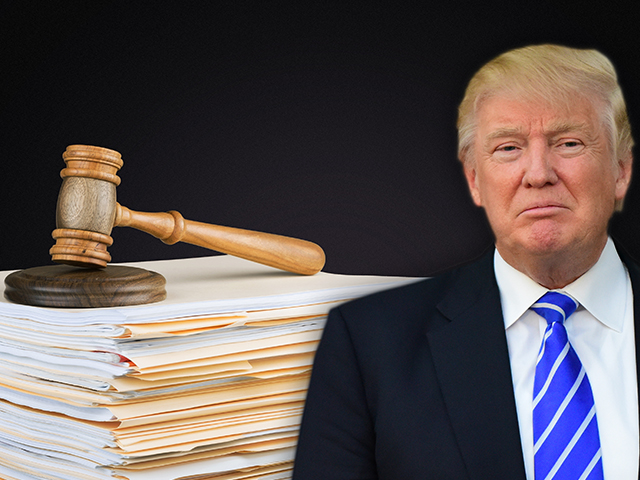 And here we are again. Our obviously unhinged man-child of a president is throwing a Twitterfit about James Comey. Again. This morning, right before he started bragging about his “beautiful” healthcare bill, he sputtered out this gem:
And here we are again. Our obviously unhinged man-child of a president is throwing a Twitterfit about James Comey. Again. This morning, right before he started bragging about his “beautiful” healthcare bill, he sputtered out this gem:
James Comey leaked CLASSIFIED INFORMATION to the media. That is so illegal!
— Donald J. Trump (@realDonaldTrump) July 10, 2017
It’s almost as if Trump’s last attempt at defaming Comey left too much to chance, and he wanted to make sure that he did something that was absolutely, unequivocally, actionable. Back in mid-May, Sarah Huckabee Sanders held a presser in which she accused Comey of having “lost the support of the rank and file.” Then a week later, Trump backed up Sanders’ comment, saying that the former FBI Director was “very unpopular with most people.”
These statements weren’t just were wholly inaccurate – they were also stupid and risky. When an employer says something bad about a former employee, there is always the risk of a lawsuit. No one needs that headache, so most employers just zip it after someone is ousted. After Huckabee-Sanders’ statements, I analyzed a potential defamation suit Comey could bring against Trump for having maligned him with respect to the imagined mismanagement of the FBI. Such a lawsuit, though unlikely to ever see the inside of a courtroom, definitely had potential merit.
Compared to today’s tweet accusing Comey of breaking the law, that whole “losing support of the rank and file” thing was nothing. Accusing someone of illegality falls into a special category known as “defamation per se” – meaning that the negative impact to a person’s reputation is so obvious that the plaintiff isn’t even required to prove specific damages.
At this point, some wise-ass reader is guaranteed to take to Twitter his or herself to harass me with the the sterling point that presidents are generally not liable in civil lawsuits if the litigation concerns their official acts as president. This is basically true. Such immunity means that Trump might well be given blanket immunity for his defamatory acts. But – and this is not an insignificant hurdle—to be entitled to immunity, the president’s statements must have been acts carried out in his official presidential capacity. Would a court consider Trump’s angry-tweeting be something done “in his official presidential capacity”? Sure. Maybe. But a court could just as easily find that those actions were purely personal, and that Trump was not operating under the protection of presidential immunity. A judge could certainly rule in Trump’s favor, but I’m not guessing there are a lot of judges who truly believe that one of Trump’s obnoxious tweetstorms rises to the level of official government business.
The thing about presidential immunity is that it was created to shield an important public figure from nuisance lawsuits that would interfere with proper running of the country. It was not created to allow the leader of our nation to bully private individuals and then deprive those victims of legal recourse. Immunity aside, any defamation claim would obviously require that Trump lied when he accused Comey of leaking classified information to the media. While I have no personal knowledge of whether Comey did or did not leak classified information to anyone, this story published by Politico today is rather telling. Columbia University law professor, Daniel Richman – the guy to whom Comey passed along his infamous memo—had the following to say:
“Jim Comey never gave me a memo that was classified; and the memo whose substance I passed on [to] the Times has never to my knowledge been classified.”
In other words, if Trump’s tweet isn’t defamatory, there had better be some independent evidence of some other time Comey leaked some other information to some other media source. As before, though, Comey is still unlikely to sue Trump over these ridiculous public statements about him. During his testimony before Congress, Comey made it clear that he’d go quietly and without incident, in an effort to preserve public confidence in the FBI. James Comey likely doesn’t need to sue Donald Trump for his own purposes; Comey’s reputation can likely withstand rants from a thin-skinned egomaniac who is as ignorable as he is ignorant. But the need for Trump to be held legally accountable is swelling by the hour. When our commander in chief can single out a private citizen, defame him, and publicly accuse him of criminal action, we’ve got a problem; when that citizen has no recourse, that problem is even worse. It’s time, people.
This is an opinion piece. The views expressed in this article are those of just the author.